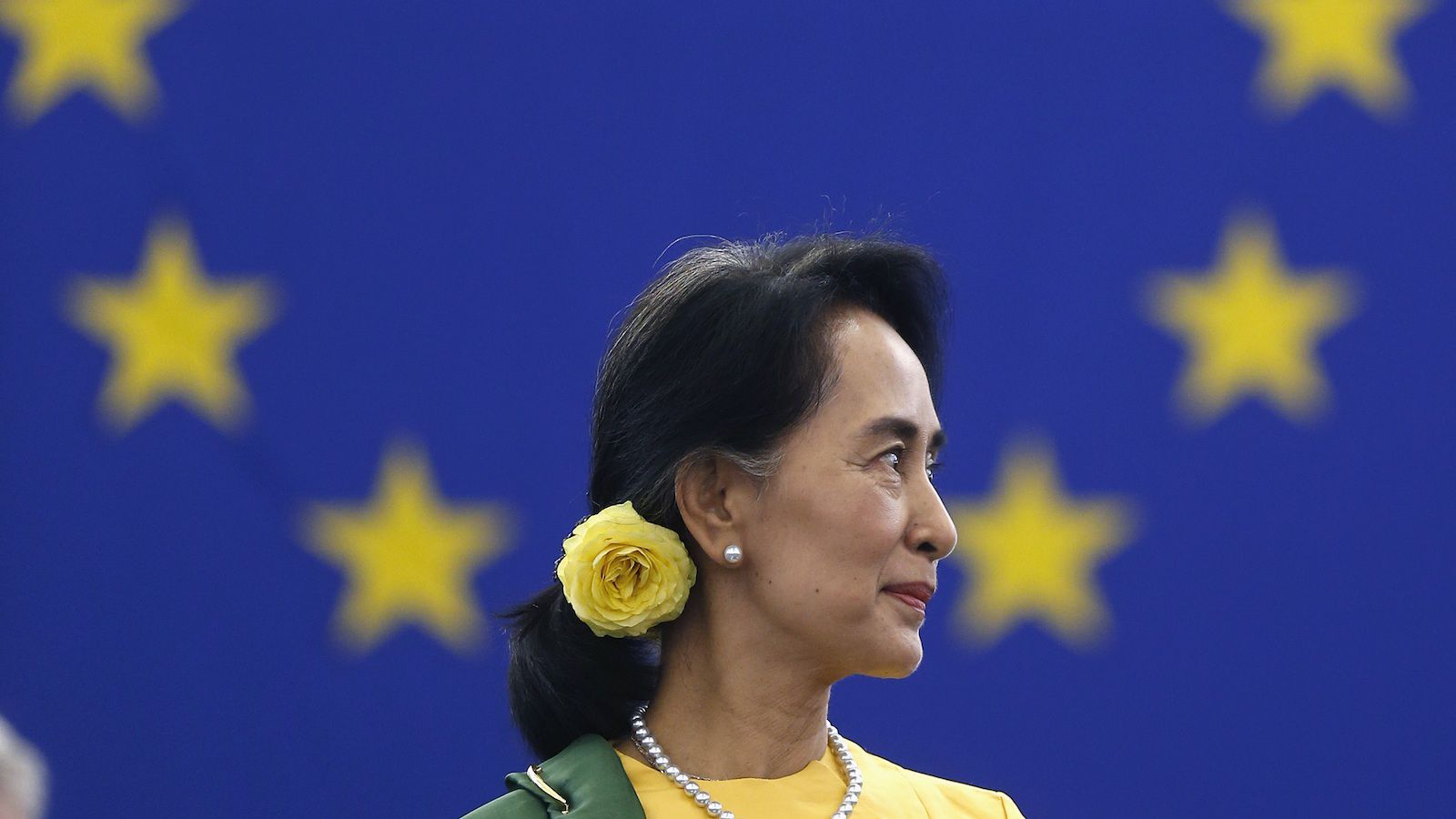Myanmar’s Aung San Suu Kyi doesn’t even want to hear the term “Rohingya”
When Aung San Suu Kyi was awarded the Nobel Peace Prize in 1991, the Nobel committee praised her “non-violent struggle for democracy and human rights” and her desire for “conciliation between the sharply divided regions and ethnic groups in her country.” She was under house arrest at the time.


When Aung San Suu Kyi was awarded the Nobel Peace Prize in 1991, the Nobel committee praised her “non-violent struggle for democracy and human rights” and her desire for “conciliation between the sharply divided regions and ethnic groups in her country.” She was under house arrest at the time.
Nearly 15 years later, she was swept into power as the de facto democratic leader of Myanmar, where she officially holds the titles of state counselor and foreign minister. It was a remarkable journey, both for her and her country. But her status as both a Nobel winner and a former political prisoner immediately threatened to complicate her legacy in regard to the plight of the Rohingya, her country’s oppressed Muslim ethnic minority group.
Her months of silence on the topic have vexed human-rights advocates. The United Nations, who had once rallied behind Aung San Suu Kyi during her arrest by the Burmese military junta, now implores her to end the persecution of the Rohingya.
But, according to the New York Times, her government recently made an official request to the US ambassador to Myanmar to not even use the term “Rohingya.”
“We won’t use the term Rohingya because Rohingya are not recognized as among the 135 official ethnic groups,” said Kyaw Zay Ya, a foreign ministry official quoted by the Times. “Our position is that using the controversial term does not support the national reconciliation process and solving problems.”
Though they’ve lived in Myanmar for centuries, the Rohingya are viewed by many in the country as illegal immigrants. They have been been confined to concentration camps, where conditions are atrocious, and had their citizenship revoked. Some have attempted to flee by taking a dangerous ocean voyage in rickety boats, often with tragic results.
The Myanmar majority (approximately 80%) practices Buddhism and supports anti-Muslim policies. Like their government, they refuse to use the term “Rohingya,” and instead use “Bengalis.” The term further cements their beliefs that the Rohingya are illegal intruders from Bangladesh and should not be recognized as citizens.
Aung San Suu Kyi supporters including the Dalai Lama had hoped she would defend the stateless Rohingya after her party’s big victory in elections last November. But this newest diplomatic request suggests an end to the crisis is perhaps even further away than expected.